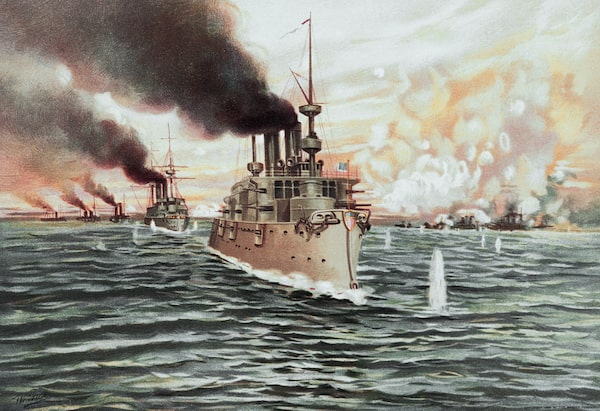Good morning,
Ontario medical schools are raising concerns about students’ declining interest in family medicine at a moment when the country is desperate for more family doctors.
Senior officials told a news conference yesterday that significant reforms, including raising pay and reducing administrative burdens, are necessary to persuade medical students to choose family medicine over higher-paid specialties.
The plea from educators came on the same day that the Canadian Medical Association warned the federal government’s proposed increases to capital-gains taxes could hurt physician recruitment and retention.
People walk on the grounds of the University of Toronto in Toronto, Ontario, Canada September 9, 2020.CARLOS OSORIO/Reuters
This is the daily Morning Update newsletter. If you’re reading this on the web, or it was forwarded to you from someone else, you can sign up for Morning Update and more than 20 other Globe newsletters on our newsletter signup page.
Employers boost recruitment of temporary foreign workers, despite softer labour market
Canadian companies increased their recruitment of temporary foreign workers last year, even as the labour market weakened and the unemployment rate rose.
During the last quarter of 2023, employers were approved to fill more than 81,000 positions through the Temporary Foreign Worker Program, according to figures shared by the federal government with The Globe and Mail. It was the largest quarter for approvals since Ottawa made several employer-friendly changes to the program in the spring of 2022.
The federal government is now trying to clamp down on temporary migration to the country with various changes that include tighter restrictions on the TFW program. Immigration Minister Marc Miller has said that Canadian companies have become “addicted” to temporary foreign labour.
U.S. Senate overwhelmingly approves aid for Ukraine, Israel and Taiwan with big bipartisan vote
The U.S. Senate passed a US$95-billion bill to send war aid to Ukraine, Israel and Taiwan, sending the legislation to President Joe Biden after months of delays and contentious debate over how involved the United States should be in foreign wars.
The bill passed the Senate on an overwhelming 79-18 vote yesterday after the House had approved the package Saturday. Biden, who worked with congressional leaders to win support, is expected to quickly sign the legislation and start the process of sending weapons to Ukraine. The legislation would also send US$26-billion in wartime assistance to Israel and humanitarian relief to citizens of Gaza, and US$8-billion to Taiwan to counter threats from China.
- As war rages, Ukraine attempts to bolster its tired ranks with mobilization bill
- Ukrainian politician calls for more military aid from Canada
Got a news tip that you’d like us to look into? E-mail us at tips@globeandmail.com Need to share documents securely? Reach out via SecureDrop
Also on our radar
B.C. pauses online harms bill: The B.C. government has agreed to shelve proposed legislation that would have allowed it to sue social-media companies for online harms after Meta, TikTok and others agreed to work with the province to put voluntary protections in place.
Toronto police chief says he accepts Zameer verdict: Toronto Police Chief Myron Demkiw said yesterday that he accepts the verdict in the case of Umar Zameer, who was acquitted Sunday in the death of a police officer. The chief tried to contain the backlash against him after earlier saying he wished for a different outcome.
Gaza protests intensify at U.S. schools: A pro-Palestinian protest that began last week at Columbia University in New York and led to the arrest of more than 100 protesters has sparked demonstrations at universities across the U.S. this week as students demand an end to U.S. support of Israel’s war in Gaza.
- Ontario PC MPPs again veto lifting keffiyeh ban at Queen’s Park, despite Ford support
- Some Palestinians forced to flee homes as Israel pounds northern Gaza
Tabloid publisher testifies he suppressed Trump stories: At a 2015 meeting at Trump Tower, David Pecker, the former publisher of tabloid the National Enquirer, agreed to be the “eyes and ears” of Donald Trump’s presidential campaign by buying up scandalous stories about the real estate mogul and suppressing them, Pecker testified yesterday at Trump’s hush-money trial.
Morning markets
World stocks rose led by tech names as investors’ focus shifts to earnings from U.S. megacap bellwethers this week. An after-hours surge in Tesla shares helped spurred a rally in tech stocks in Asia, where the sector rose 3.7 per cent, and Europe, where it gained 2.5 per cent.
Japan’s Nikkei closed 2.42 per cent higher, while Hong Kong’s Hang Seng was up 2.21 per cent.
In early trading, Britain’s FTSE 100 rose 0.44 per cent, Germany’s DAX gained 0.24 per cent and France’s CAC 40 advanced 0.15 per cent.
The dollar traded at 73.10. U.S. cents.
What everyone’s talking about
Editorial: “The Liberals have gone to great pains to portray the capital-gains changes as a tax paid by the ultrawealthy, saying just 40,000 Canadians with an average gross income of $1.4-million would be affected. In other words: not your problem, middle-class Canada. That assertion glosses over a couple of important facts, however.”
Cathal Kelly: “The definition of sports greatness is repeatedly doing things no one has the right to expect you to do, and doing them so regularly that people start to take it for granted. No Leaf has hit that bar in 50 years. Maybe Matthews is ready to give it a go.”
Today’s editorial cartoon

David Parkins/The Globe and Mail
Living better
Own a cottage or investment property? Here’s how to navigate the new capital gains tax changes
New rules for taxing capital gains mean quick decisions are required for cottages that families have owned for decades, and investment properties as well. Until June 24, you can sell a second property or cottage and pay tax on just half your capital gain.
The Globe’s Rob Carrick explains what the new rules mean.
Moment in time: April 24, 1898

United States Fleet destroying the Spanish Fleet at Manila.Bettmann/Getty Images
Spain declares war on the United States
The Spanish-American War had its roots in the quest for independence in Cuba and the Philippines. Tensions between Spain and the United States brewed for several years and were exacerbated when the U.S., which had large financial ties with Cuba, sided with the Cubans. In February of 1898, the Americans sent a warship, the USS Maine, to Havana to protect U.S. citizens and property. But the ship mysteriously blew up. When the U.S. government officially supported Cuban independence two months later, Spain, on this day in 1898, officially declared war on the United States. The next day, the U.S. – spurred on by newspapers whose headlines roared, “Remember the Maine; to Hell with Spain” – declared war on Spain. The conflagration – described by U.S. secretary of state John Hay as a “splendid little war” – ended four months later. Spain lost. And lost Cuba (which it had controlled for 400 years) and lost South Pacific territory and the Philippines, which it sold to the United States for US$20-million. At the same time, U.S. president William McKinley annexed Hawaii and thus made his country into a Pacific powerhouse. Spain’s colonial empire was over; the victorious United States replaced it as a world power. Philip King
Enjoy today's horoscopes. Solve today's puzzles. Read today's Letters to the Editor.
If you’d like to receive this newsletter by e-mail every weekday morning, go here to sign up. If you have any feedback, send us a note.